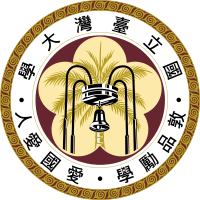【宏觀視野】Reflections on the International Conference on
【宏觀視野】
Reflections on the International Conference on "Freedom, Equality, and Governance in the Making of Modern Democracy and a Market Economy"*
John A. Tucker
Professor of History and Director, Asian Studies Program, East Carolina University
As we move well into the 21st century, the importance of understanding and hopefully further perfecting our political and economic systems is more important than ever before. Our political values are indeed of great consequence to our future and so must be appreciated fully. NTU's Institute for Advanced Studies in the Humanities and Social Sciences international conference on "Freedom, Equality, and Governance in the Making of Modern Democracy and a Market Economy" contributed significantly to furthering a critical grasp of the importance to these values and their abiding relevance to modern democracies and market economies. In particular, I most appreciated Professor Chun-chieh Huang's paper on "'Humane Government' as Moral Responsibility of Rulers in East Asian Confucian Political Philosophy" for highlighting the depth of East Asian political values relevant if not integral to modern democracies. Professor Huang's paper was complemented by Professor Sungmoon Kim's study, "Confucianism and the Right to Political Participation" which also explored the relationship between traditional East Asian values and modern political and economic systems. Professor Kirill Thompson offered fascinating evidence, textual and philosophical, showing how early understandings of East Asian social and political thought helped shape the development of ideas and institutions that are often imagined to be distinctively western in origin and expression. Throughout the conference, a continuing theme addressed was the one first explored by the keynote speaker, Professor Alan Patten in his paper "Social Justice and Language Policy." Equally integral to the discussions throughout the conference was the question of the appropriateness and compatibility of democracy and a free market economy to various cultures and belief systems. In this context, Professor Alan Wood's presentation, "The Arc of History Bends Towards Democracy," provided many thought provoking insights. Other topics explored ranged from "Neo-liberal" deformations of democracy and economic resources to Confucian conceptions of justice in "the world of the 'Great Unity'". Overall, while the conference avoided leaping to facile conclusions on any particular question, it provided all participants with a heightened and more profound appreciation of the issues involved in coming to terms with political values and socio-political institutions as we move forward in the new century.
My own thinking is that the varied traditions of East Asian Confucianisms—with recognition of their diversity and continuity, as Professor Chun-chieh Huang has emphasized—resonate with much that is integral to modern democracies and relevant to the just development of market economies. This is not to say, simplistically, that Confucianism provides for either democracy or market capitalism; instead, it calls attention to those dimensions of Confucianism that have emphasized the importance of the people to the political order, and in regard to economics, the importance of providing first for the material welfare of the people in our efforts to found a moral political order. In these regards, Confucianism in its many expressions has much to offer the modern world in its continuing pursuit of modern forms of democracy and market economies.
* The Conference was sponsored by the Institute for Advanced Studies in the Humanities and Social Sciences, National Taiwan University, November 6-7, 2015.



